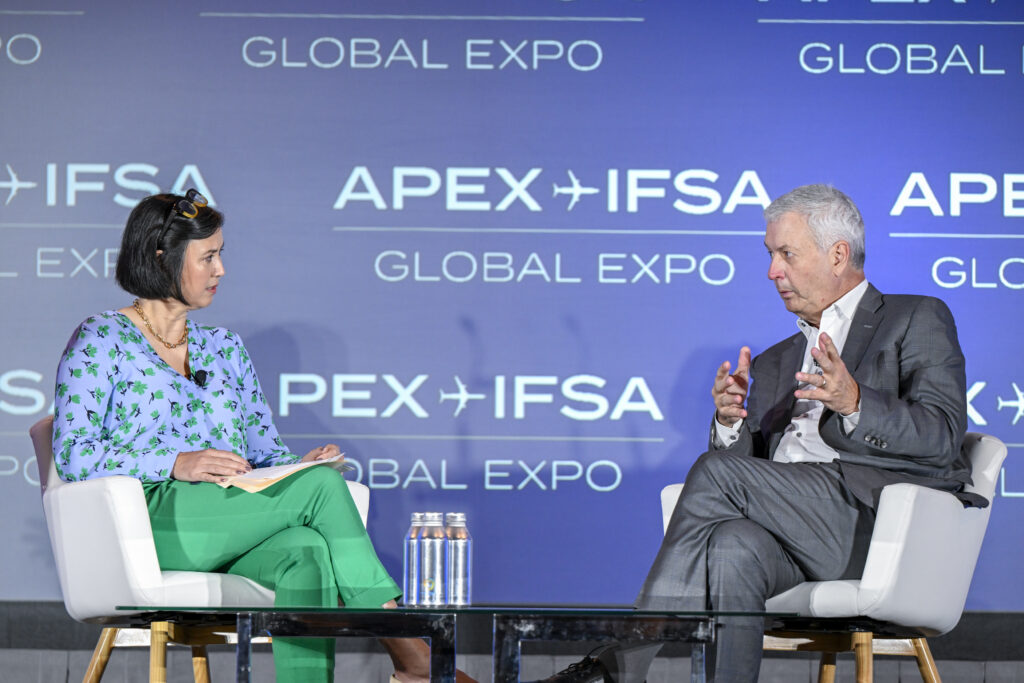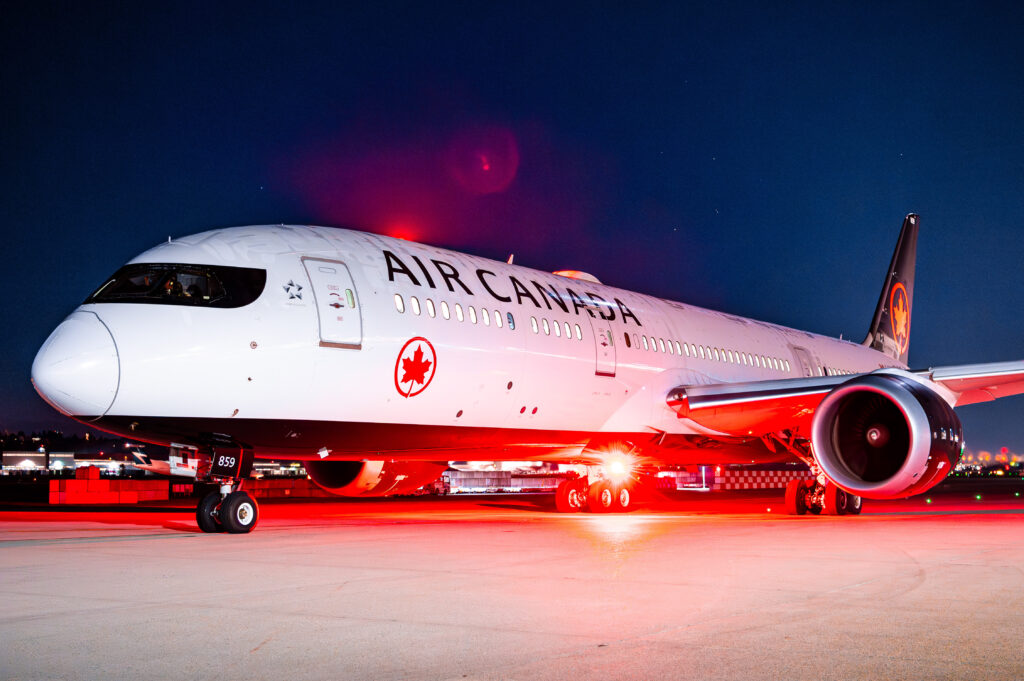Air Canada’s Digital Vision: AI-Powered Personalisation Takes Center Stage at APEX
Share
In the opening session at APEX Global EXPO in Long Beach, Air Canada’s President and CEO Michael Rousseau outlined an ambitious technological transformation strategy, positioning artificial intelligence at the core of the airline’s future passenger experience.
Speaking with BBC presenter Michelle Fleury, Rousseau detailed Air Canada’s AI commitment, with over 75 people working full-time on AI initiatives, a Vice President overseeing AI in Canada, and the recent appointment of their first Chief Digital Officer. The airline’s vision extends beyond conventional automation, with plans to potentially extend its premium concierge service to all customers through AI technology.

“We would love to offer that service to all our customers,” Rousseau explained, describing how AI-powered virtual concierge services could potentially serve Air Canada’s entire passenger base of 130,000 daily travellers. This marks a significant shift in how airlines approach service scalability through technology.
The digital transformation strategy encompasses several key infrastructure initiatives, including a comprehensive Wi-Fi rollout across the airline’s fleet. Rousseau confirmed that 80% of Air Canada’s aircraft will be Wi-Fi-enabled by Q3 2025, with full implementation across all 350 planes, including regional aircraft, by year-end.
Post-pandemic lessons have shaped the airline’s approach to operational integration. Rousseau highlighted improved collaboration with airport authorities and security agencies, emphasising enhanced data-sharing protocols that respect privacy regulations while optimising operational efficiency.
According to Rosseau, the airline’s growth trajectory is robust, with a fleet expansion that includes new Airbus A320s, A321XLRs, and Boeing 787-10 aircraft. This aligns with Air Canada’s broader technological evolution, including the imminent launch of a new operations system designed to better manage service disruptions.
However, Rousseau acknowledged the challenges of implementing AI solutions, particularly regarding data privacy and ethical considerations. The airline has established comprehensive governance rules to address these concerns while managing the increasing internal demand for AI applications across different departments.

Regarding sustainability, Rousseau emphasised Sustainable Aviation Fuel’s (SAF) critical role in achieving industry environmental goals. “Most models indicate that for the aviation industry to hit net zero by 2050, 65% of the solution would be SAF,” he stated, noting that technological solutions alone won’t suffice within this timeframe.
Finally, the interview touched on Air Canada’s approach to industry challenges, including geopolitical tensions and OEM delivery issues. Rousseau emphasised focusing on controllable factors: “What we spend our time on is controlling the things we control. We can get much better customer service. We can invest in technology.”


